Understanding Appointment Setting for Consultants
Appointment setting for consultants is a critical skill that directly influences business growth and client engagement. It involves proactively reaching out to potential clients, scheduling meetings, and ensuring consistent communication that builds trust and rapport. For consultants, these meetings are often the gateway to securing projects, contracts, or advisory opportunities. Without an effective appointment setting strategy, even highly skilled consultants may struggle to fill their pipelines or maintain a steady flow of clients. Challenges like busy schedules, gatekeepers, or unresponsive leads can make this process daunting. However, mastering appointment setting ensures that consultants maximize their time and resources while maintaining a professional image. By understanding its importance, consultants can create structured approaches that make their outreach more efficient and successful.
Essential Skills for Successful Appointment Setting
Effective appointment setting for consultants requires a combination of communication, persuasion, and organizational skills. Strong communication skills help consultants articulate their value proposition clearly and confidently, making clients more inclined to accept a meeting. Time management is equally important, as consultants often juggle multiple clients and projects while trying to maintain outreach consistency. Persuasion skills allow consultants to present their services in a compelling yet non-intrusive manner. Handling objections is another critical skill, as potential clients may express hesitations due to budget constraints, timing issues, or skepticism. Active listening helps consultants respond appropriately and address concerns without being pushy. Consultants who develop these skills increase their chances of securing meetings that lead to meaningful business opportunities.
Tools and Technology to Streamline Appointments
Modern technology offers numerous tools to make appointment setting for consultants more efficient and manageable. Scheduling software allows clients to choose suitable time slots, reducing back-and-forth communication. Customer Relationship Management systems help track client interactions, follow-ups, and outcomes, keeping the sales process organized. Automated reminders and notifications reduce no-shows and ensure clients are prepared for meetings. Email and messaging platforms can be integrated with calendars to streamline communication and follow-ups. Consultants can also leverage analytics within these tools to measure engagement, track response rates, and optimize their approach. Adopting the right combination of tools saves time, reduces errors, and enhances the overall client experience. For consultants aiming to scale their business, technology plays a vital role in making appointment setting systematic and reliable.
Crafting the Perfect Appointment Request
The key to successful appointment setting for consultants lies in crafting outreach messages that are clear, compelling, and personalized. Generic messages are often ignored, so personalization based on client needs and background is essential. The message should highlight the consultant’s value proposition, explain the purpose of the meeting, and propose convenient times. Choosing the right medium—whether email, phone, or social media—can impact response rates significantly. Timing also plays a crucial role; sending messages when the client is most likely to be attentive increases the likelihood of engagement. Consultants should focus on brevity while still providing enough context to spark interest. Using polite language and a professional tone reinforces credibility and encourages potential clients to respond positively. This strategic approach increases the chances of turning outreach into confirmed appointments.
Building a Strong Appointment Setting Process
A structured process is essential for consistent appointment setting for consultants. The process should begin with identifying target clients and segmenting them based on potential value. A step-by-step outreach plan, including initial contact, follow-up sequences, and reminders, ensures that no leads are neglected. Tracking interactions and results allows consultants to refine their approach over time. Key steps in the process include:
- Researching client needs and background
- Crafting personalized messages or scripts
- Scheduling appointments with integrated calendar tools
- Sending confirmation emails and reminders
- Following up after missed or rescheduled meetings
- Logging interactions in a CRM for future reference
- Analyzing conversion metrics to optimize strategy
Having a clear process not only improves efficiency but also ensures that clients experience a professional and organized approach. Consultants who maintain consistency in their appointment setting see higher engagement and more opportunities for business development.
Overcoming Common Appointment Setting Challenges
Even experienced consultants encounter obstacles in appointment setting. Gatekeepers, busy schedules, and unresponsive leads are frequent hurdles. To overcome these challenges, consultants must approach each situation with patience and strategy. Building rapport with gatekeepers can open doors to decision-makers, while flexible scheduling accommodates client availability. Handling reschedules and cancellations gracefully maintains professionalism and preserves the relationship. Consultants can also tailor their approach to different industries or client personas to increase engagement. Effective follow-ups, spaced appropriately, demonstrate persistence without becoming intrusive. By anticipating challenges and preparing solutions, consultants can keep their appointment pipelines active and productive.
Measuring Success and Continuous Improvement
Tracking performance is crucial for appointment setting for consultants to ensure strategies remain effective. Key metrics such as appointment confirmation rates, no-show percentages, and lead-to-meeting conversion rates provide insights into the process. Consultants can use these metrics to identify patterns, understand client behavior, and adjust messaging accordingly. Continuous improvement also involves skill development, such as refining communication, objection handling, or persuasive techniques. Seeking feedback from clients or peers can highlight areas for enhancement. Regularly reviewing performance allows consultants to implement new tools, strategies, or approaches that improve efficiency. By measuring success and making iterative improvements, consultants ensure that their appointment setting efforts consistently generate valuable opportunities.
Frequently Asked Questions
- What is the best way for consultants to approach cold leads?
Cold leads should be approached with personalized messages that highlight the consultant’s value and relevance to the client’s needs. Researching the client and referencing specific challenges or goals increases response rates. - How many follow-ups are appropriate before moving on?
Typically, three to five follow-ups are considered effective. Each follow-up should offer additional value or insight rather than repeating the same message. - Can appointment setting be fully automated for consultants?
While automation tools can schedule and send reminders, personal communication remains crucial. A hybrid approach ensures efficiency without losing the human touch. - How do I personalize appointment requests without spending too much time?
Using templates with customizable fields for client name, industry, and specific needs allows personalization at scale. CRM tools can also help automate personalized outreach. - What are common mistakes consultants make when setting appointments?
Common mistakes include sending generic messages, failing to follow up, ignoring scheduling conflicts, and being overly aggressive. Avoiding these pitfalls improves engagement and response rates.
Takeaway
Mastering appointment setting for consultants is not just about filling a calendar; it is about creating meaningful connections that lead to business growth. By combining effective communication, strategic processes, and modern tools, consultants can consistently secure client meetings while maintaining professionalism. Continuous improvement, attention to detail, and personalized outreach ensure that each appointment has the potential to become a valuable opportunity. With a clear approach and commitment to best practices, consultants can transform appointment setting from a challenging task into a reliable engine for client acquisition.











